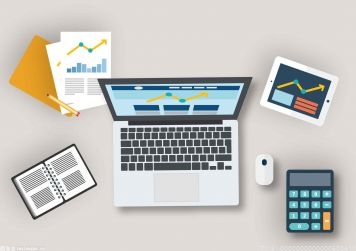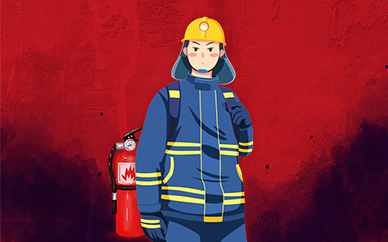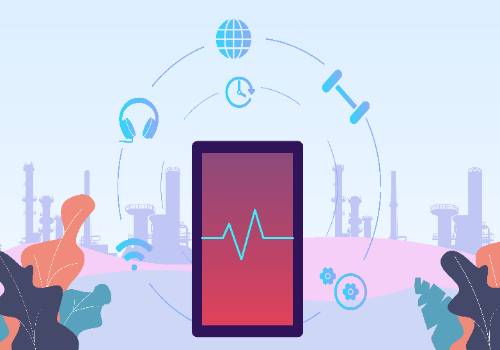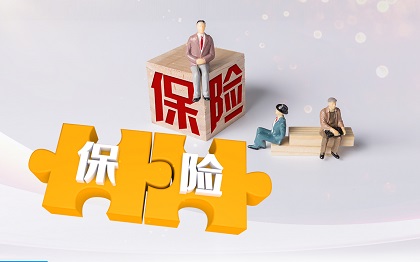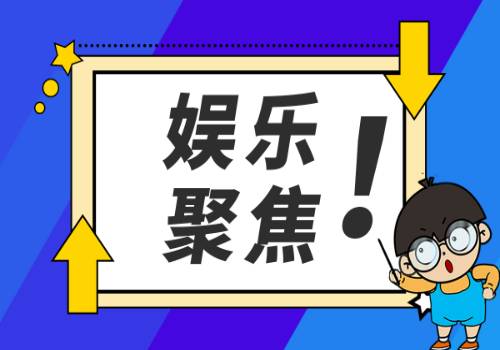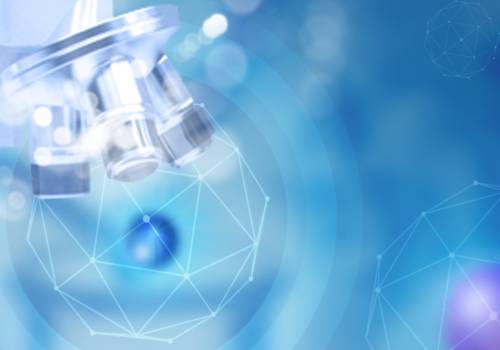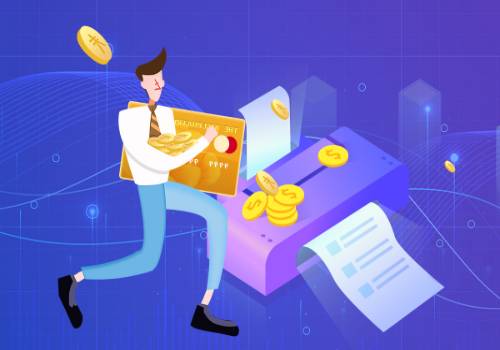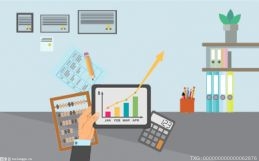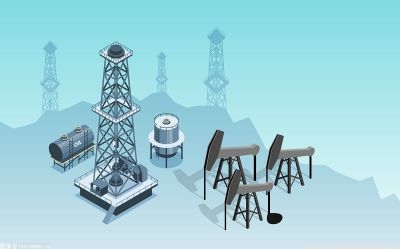
TED演讲者:Patricia Villarrubia-Gómez / 帕特里夏·维拉鲁比亚-戈麦斯
演讲标题:The problem with plastics -- and how they're changing the environment / 塑料问题——以及它们如何改变环境
 (相关资料图)
(相关资料图)
内容概要:Plastics are everywhere -- they're in our favorite electronic devices, they package our food and insulate our homes. Today, the total mass of plastic is twice the total mass of all living organisms on the planet, and it's starting to change the processes that allow the Earth's climate system to work. Plastic pollution researcher Patricia Villarrubia-Gómez breaks down the consequences of producing all of this plastic at every stage, from fossil fuel extraction to the disposal of si...
塑料无处不在——它们在我们最喜爱的电子产品中,它们包装着食品,隔离我们的房屋。今天,地球上塑料的总质量是所有生物总质量的两倍,并且它宜开始改变地球气候系统正常运作的过程。塑料污染研究者帕特里夏·维拉鲁比亚-戈麦斯(Patricia Villarrubia-Gómez)分析生产这些塑料每个阶段的影响,从提取化石燃料到在垃圾填埋场和海洋中处理一次性塑料。摆脱塑料问题的第一步是承认塑料问题。
*******************************************
【1】So plastics.
塑料
【2】Plastics come in all shapes, forms and colors.
塑料有不同的形状、形式和颜色
【3】They are everywhere.
它们无处不在
【4】They are in our makeup, it packages our food and insulates our homes.
塑料存在于我们的化妆品中 在食品包装中 在房屋隔离层中
【5】They are in airplanes and our favorite electronic devices.
在飞机里 在我们最喜欢的电子产品里
【6】They are truly a remarkable material.
塑料真的是一种了不起的材料
【7】But so are its troubles.
但也正如此,它带来麻烦
【8】And we produce and consume plastics in staggering quantities.
我们以惊人的数量制造和消耗塑料
【9】Since it's been mass-produced, the world has created over 10 billion metric tons of it.
自从开始大规模生产 人们已制造超过百亿吨级的塑料
【10】Half of them just in the past 20 years.
其中半数是在近20年内生产的
【11】I have been investigating plastic pollution [for] about a decade, and I try to align my personal choices as a consumer with the aspirations of my research.
我已调查塑料污染十年 我试着把我个人的消费选择 和对研究的愿望联系起来
【12】And you may think, “Oh, that’s easy, you know how to do it.” But actually it’s not.
您可能会想:哦,这很容易 我们知道怎么做 但事实并非如此
【13】Sometimes it's impossible to avoid single-use plastics.
有时我们不能避免使用一次性塑料
【14】The system is built that way.
现行体制就是如此
【15】The dominant narrative about plastics tell us that this is a consumer’s and a waste management problem.
现在的主流思想是消费者和垃圾管理 共同造就了塑料问题
【16】Who of us here have not heard about the tales of gigantic plastic islands floating in the middle of the ocean?
我们当中谁没听过 巨大塑料岛屿 漂浮在大洋中的事儿?
【17】Which, by the way, it's not true.
顺便说一下,这不是真的
【18】And that low-income countries are to blame for most of the plastic waste entering our oceans.
还说低收入国家应承担大部分责任 让塑料垃圾涌入海洋
【19】But this narrative is a misleading oversimplification of a much bigger and complex story.
但这种说法是误导和简化 问题更大、更复杂
【20】Plastics and their chemical additives are really a climate problem.
塑料和其中的化学添加剂 是一个关于气候的问题
【21】Now, we need to think of plastics from a systemic perspective.
现在,我们需要从一个系统化的角度 思考塑料问题
【22】So let me take you through the journey of plastics.
那么,让我为您介绍下塑料之旅
【23】Plastics contribute to climate change from before the moment they are produced to long beyond the moment they are disposed or landfill or drift into the ocean.
塑料对气候改变的影响 从它们诞生之前就开始了 一直到延续到它们被丢弃、填埋 或倒入海洋之后很长一段时间
【24】And it will remain in the environment for centuries, degrading ecological processes.
它持续在环境中数百年 逐渐被生态降解
【25】For 99 percent of all plastics the starting point is fossil fuel hydrocarbons.
99%的塑料 来自于化石燃料碳氢化合物
【26】Oil, gas and coal are extracted and refined to produce plastic and other synthetic chemicals.
石油、天然气和煤被开采出来 并提炼出塑料 和其他合成化学物
【27】And those processes generate greenhouse gases such as CO2 and methane.
那些过程产生温室气体 例如二氧化碳和甲烷
【28】Studies indicate that if nothing is done, the production of single-use plastic alone will contribute to more than 10 percent of all greenhouse gas emissions by 2050.
研究表明如果不加干预 单单是一次性塑料的产生 将影响超过10% 2050年所有的温室气体排放
【29】And the thing is that our use of plastic last often just a few minutes or a few hours, then we throw them away, and that generates further emissions.
问题是我们对塑料的使用 通常只持续几分钟 或几个小时 然后我们就把它们扔掉了 造成了进一步的排放
【30】And we know that our recycling system doesn't work.
我们心知肚明 回收系统不起作用
【31】It's broken everywhere.
它处处漏洞
【32】And recycling plastics is hard and not cost-competitive.
回收塑料很难 并且成本不具有竞争力
【33】Most of the waste that has not been landfilled or incinerated domestically is shipped across the planet, and it reaches low-income countries where they are expected to be recycled.
大部分垃圾没有被填埋 或焚烧于国内 而是船运穿过大洋 到达低收入国家 期待它们在那里被回收利用
【34】But this is one of those hypocrisies of globalization where rich countries outsource their problems to low-income countries.
但这是那些全球化伪善行为之一 富裕的国家将自己的问题 外包给低收入国家
【35】And we know that these countries do not have the capacity nor the technology to deal with them in a soundly manner.
我们知道这些国家既无能力 也无技术以妥善的方法去处理垃圾
【36】And so huge amounts of plastics are illegally incinerated, informally dumped or get lost at sea.
因此大量的塑料被非法焚烧 随意丢弃或落入海洋
【37】And as a result, millions of tons of plastic every year get into our environment.
其结果是 每年有数百万吨塑料 进入我们的自然环境里
【38】But even plastics that are soundly managed emit greenhouse gases.
然而,即使是良好管理下的塑料 也排放温室气体
【39】Once plastics enter the environment, landfill, are dispersed in soil or water, they start a process of breaking down into micro and nanoparticles.
一旦堵料进入环境、填埋场 分散在土壤和水中 它们开始分解为微米和纳米颗粒
【40】I will just call them microplastic for the sake of the conversation today.
在今天的交谈中 我叫它们微塑料吧
【41】And this process of breaking down emits powerful gases such as methane, ethylene and CO2.
这个分解的过程会释放出 强大的气体,比如甲烷 乙烯和二氧化碳
【42】And that's true for both traditional and biodegradable plastics.
传统塑料 和可降解塑料都是如此
【43】On the surface of microplastics, new microbial communities can grow.
在微塑料表面 新的微生物群落可以生长
【44】We call them the plastisphere.
我们称之为塑料球
【45】And their biological activity also releases additional CO2 and nitrous oxide into the environment, creating the possibility of further magnifying the climate problem.
它们的生物学行为 也会释放额外的二氧化碳 一氧化二氮进入环境 可能进一步加剧气候问题
【46】It means that microplastic can also impair the growth and the photosynthesis capacity of phytoplankton, which are the microorganisms producing much of the oxygen we breathe.
这意味着微塑料也会损害 浮游植物的生长 以及光合作用能力 而我们呼吸的大部分氧气 都是由微生物产生的
【47】But also microplastics can have toxic effects on zooplankton, and the health of these organisms
微塑料也会对浮游动物产生毒害作用 这些有机物的健康
【48】[is] essential for the functioning of all aquatic food webs.
对所有水生食物网的运作至关重要
【49】And unfortunately, the problems run even deeper.
不幸的是,问题还不止于此
【50】Microplastics bind with the so-called marine snow, which are made out of the clumps of bacteria, plankton and other organic material that sinks down into the ocean depth, acting like a biological carbon pump.
微塑料与所谓的 由细菌团构成的海洋雪 浮游生物以及其他有机物质 一并沉入海洋深处 就像一个生物碳泵
【51】But microplastics risk affecting this marine snow and potentially decreasing the capacity of the ocean to absorb and sequester carbon from the atmosphere.
但微塑料可能会影响海洋雪 可能会降低海洋 从大气中吸收和固定碳的能力
【52】And microplastics can be decreasing the reflective properties of snow and ice, potentially accelerating the melting of glaciers and polar ice.
微塑料可能减少雪和冰的反射性 加速冰川和极地冰的融化
【53】So we have early enough indications that plastic pollution is starting to change the processes that allow the Earth's climate system to work.
重复的早期迹象表明 塑料污染开始改变 地球气候系统运转的过程
【54】And this pollution is not a localized phenomenon.
而且这种污染并不是局部现象
【55】Microplastics are everywhere, from the mountaintops of Everest to the deepest sediment in the Mariana Trench.
微塑料无处不在 从珠穆朗玛峰的山顶 到马里亚纳海沟最深的沉积物
【56】They are in the air we breathe, the water we drink and the food we eat.
它们在我们呼吸的空气中 在我们饮用的水中,在摄入的食物中
【57】They are now found in our bloodstream and our lungs.
如今我们的血液和肺里也有它们的踪影
【58】And personally, the most terrifying, in the placenta of our unborn children.
我个人认为,最可怕的是 在未出生孩子的胎盘里也有微塑料
【59】Now, of course, plastic is a great material, it's versatile and durable, and in many ways it has allowed modern civilization to develop in the way it has.
当然塑料是一种很好的材料 用途广泛,经久耐用 在很多方面,它让现代文明 得以现在的方式发展
【60】But it also comes with a lot of problems and the outlook is worrying.
但它也伴随着许多问题 前景令人担忧
【61】Today, the total mass of plastic is twice the total mass of all living organisms on the planet.
目前,塑料的总质量 是我们星球上生物总质量的两倍
【62】But still, fossil fuel companies see hydrocarbon as their primary growth sector projecting a 30 percent increase of virgin plastic for single-use plastic just in the next five years.
但是,化石燃料公司 把碳氢化合物视为他们的主要增长领域 预计一次性塑料的原生塑料 产量将增加30% 预计一次性塑料的原生塑料 产量将增加30% 就在接下来的5年里
【63】We already see an accelerating pace in producing and releasing new chemicals because there are many, many kinds of plastic.
我们已经看到了生产和释放 新的化学物质加速的步伐 因为有太多,太多种类的塑料了
【64】Each one the result of a different chemical formula.
每一种都是不同化学式的结果
【65】And we know that this is incompatible with staying within the safe operating space for humanity.
我们知道这与人类安全矛盾的 我们知道这与人类安全矛盾的
【66】And given how plastics impact the climate and the world's social ecological system, this would spell a catastrophe.
考虑到塑料对气候的影响 和世界的社会生态系统 这将是一场灾难
【67】By the way, I'm not saying that we are completely doomed yet.
顺便提下,我并非说 我们已经走向穷途末路
【68】There are solutions.
还有解决的方法
【69】And it’s that worldwide, entrepreneurs and companies are creating new designs and material that can substitute traditional single-use plastic.
在世界范围内,企业家和公司 正在创造新的设计和材料 代替传统一次性塑料
【70】And social movements are consolidating and educating people to reduce their plastic footprint and pressuring local and world policy makers to enact strong policies.
社会基础更加坚实 教育人们减少塑料足迹 迫使地方和全球范围的政策制定者 去制定强有力的政策
【71】And scientists are collaborating more than ever, communicating the urgency to limit not only the volume, but the chemical diversity of plastics.
科学家们比以往更加合作 交流不仅限制塑料的总量 还有塑料多样性的的急迫性
【72】And earlier this year, representatives from over 170 nations at the UN Environment Assembly adopted an initiative to end plastic pollution, committing all these countries to participate in creating, by 2024, a legally binding agreement that addresses the full life cycle of plastics, from production to design to disposal.
今年早些时候 来自170多个国家的代表 在联合国环境大会上 采取行动去终结塑料污染 承诺所有这些国家参与制定 到2024年生效 一项具有法律约束力的协议 解决贯穿塑料的生命周期的所有问题 从设计生产 到弃置处理
【73】We need to stop thinking of plastic just as a waste problem, one that can be solved by changing consumers's habits alone and stopping using plastic bags.
我们不能再有塑料问题 等同于废物问题的想法 以为解决之道可以仅靠 改变消费者的习惯 和停止使用塑料袋
【74】We need to think of plastics as a climate problem, as a product that creates damage along all its journey, from the drilling up of hydrocarbons to the spread of microplastics.
我们需要将塑料问题视为气候问题 视为一种在它的旅程中 可造成破坏的产品 从碳氢化合物的开采到微塑料的扩散
【75】And that can only be addressed in a systemic way.
这只能通过系统化的方式去解决
【76】Thank you.
谢谢
【77】(Applause)



